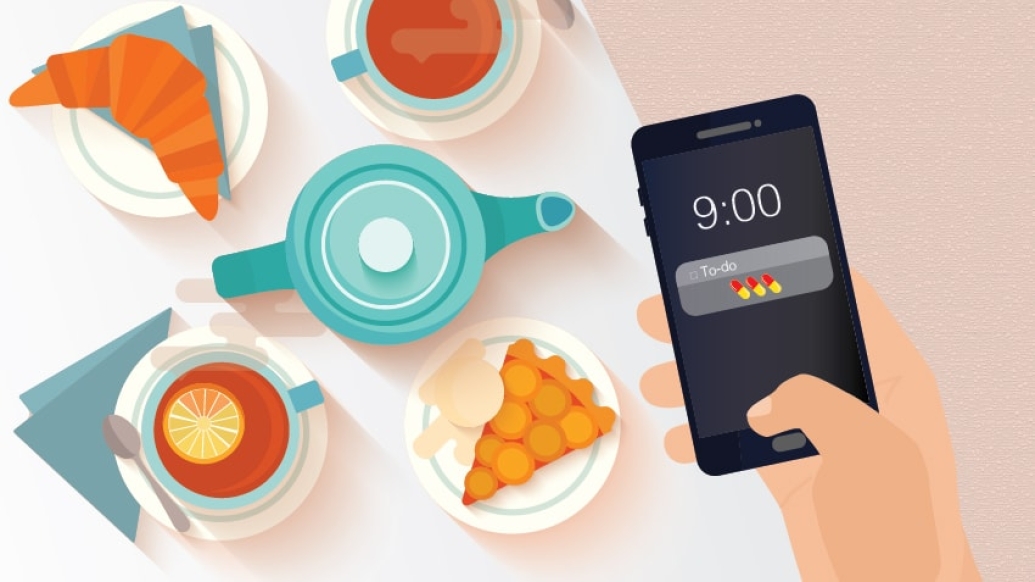Missing a dose of your daily meds might not seem like a big deal, but it can have real consequences. A Michigan Medicine nurse shares strategies to stay on track.
7:00 AM
Author |

Despite good intentions, many patients find it difficult to keep up with their daily medications — whether it's one pill or 10.
MORE FROM MICHIGAN: Sign up for our weekly newsletter
In fact, an estimated 50 percent of people do not take their medications as prescribed.
But compliance is critical.
"Skipping a dose may seem harmless," says Michigan Medicine nurse Joan Meagher, RN, DSN. "But in the long-term, it can have an effect, even though it might not be apparent at first."
Poor medication adherence is a common problem for heart failure patients, a recent Journal of the American Heart Association report found. As a result, these patients may experience increased heart failure symptoms and reduced physical function — and they're at higher risk for hospital admission and death.
Meagher, who works with patients in the Michigan Medicine Heart Failure and Transplant Program, refers patients to the "Every Dose, Every Day" tip sheet, developed by the American Association of Heart Failure Nurses to help all patients comply with their medications.
She spoke more about the key points, adapted from the tip sheet:
How to remember to take your medication
-
Keep a list of all your medications, including over-the-counter ones. Use a small notebook or a smartphone to track all changes. Meagher also suggests several apps featured on the tip sheet to help users manage their routine: MediSafe, Round Health and Mango Health.
-
Take your meds at the same time every day. Those times might coincide with your morning coffee or meals, after brushing your teeth or a shower, or at bedtime.
-
Leave yourself notes to help you remember. Post-it Notes on your bathroom mirror or nightstand work great, Meagher says. You can also use a dry-erase board to keep track of pills you have taken, erasing reminders after each dose.
-
Use a pillbox with the days of the week. (Ask your pharmacist or health care provider if you can remove pills from their original packing; some medications are available in pre-formed plastic packaging known as blister packs). Keep your pillbox in a visible place, such as the kitchen table, and away from moisture, heat and light — as well as children and pets.
-
Keep a calendar to write down doses and when refills are due. If you're running low on a medication, contact your health care provider or pharmacist before it's gone. "You can get refills on meds one week prior to running out," says Meagher, who also recommends using a mail order service to get a three-month supply of your medication.
-
Set an alarm in your home or on your smartphone or watch to remind you when to take your pills.
-
Ask your pharmacist if they have reminder tops — caps with reminder alarms — for your medications. Purchase a pill cutter if you need to cut your pills in half.
-
Turn your bottle upside down after you take your pills, then turn it upright at the end of the day as a reminder to start fresh tomorrow.
When reminders don't work
Even if those strategies are employed, missed doses can still happen. That's when a different conversation might be in order.
SEE ALSO: The New Medicare Card: Truth vs. Scam
"If you're still missing doses of your medication, discuss ways to simplify your medication regimen," says Meagher. "Talk to your health care provider about once-a-day or extended release medications."
Meagher also advises her patients to contact their doctor if they feel the medication or dosing needs to change — or if unexpected side effects have occurred.
Finally, Meagher says, "Review all prescription and over-the-counter medications with your pharmacist to identify any harmful drug interactions. We want you to be successful at managing your care."
Heart failure patients with questions about medication can call the Heart Failure and Transplant Program team at 800-694-0184. Check out more health-related apps recommended by Michigan Medicine

Explore a variety of health care news & stories by visiting the Health Lab home page for more articles.

Department of Communication at Michigan Medicine
Want top health & research news weekly? Sign up for Health Lab’s newsletters today!





